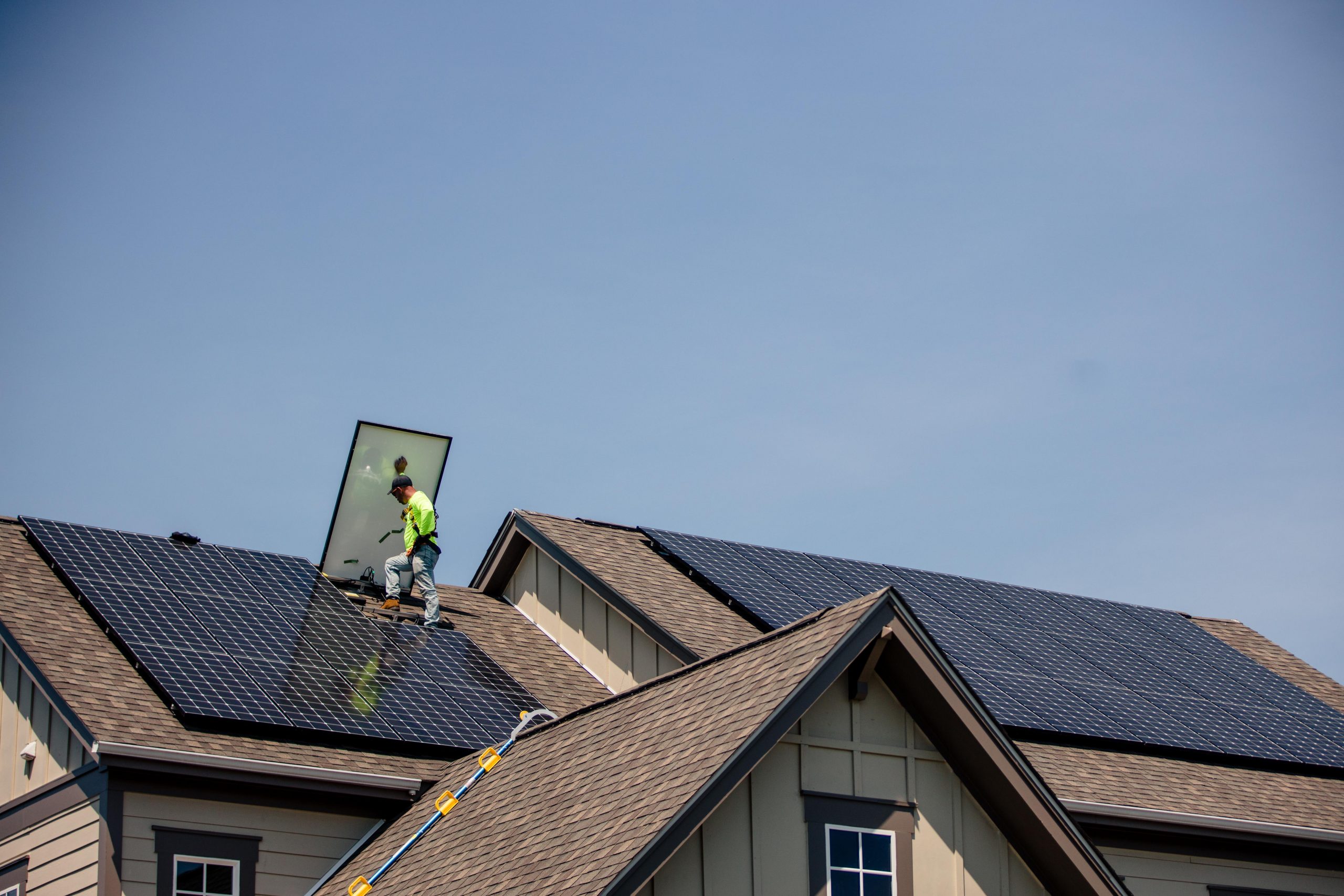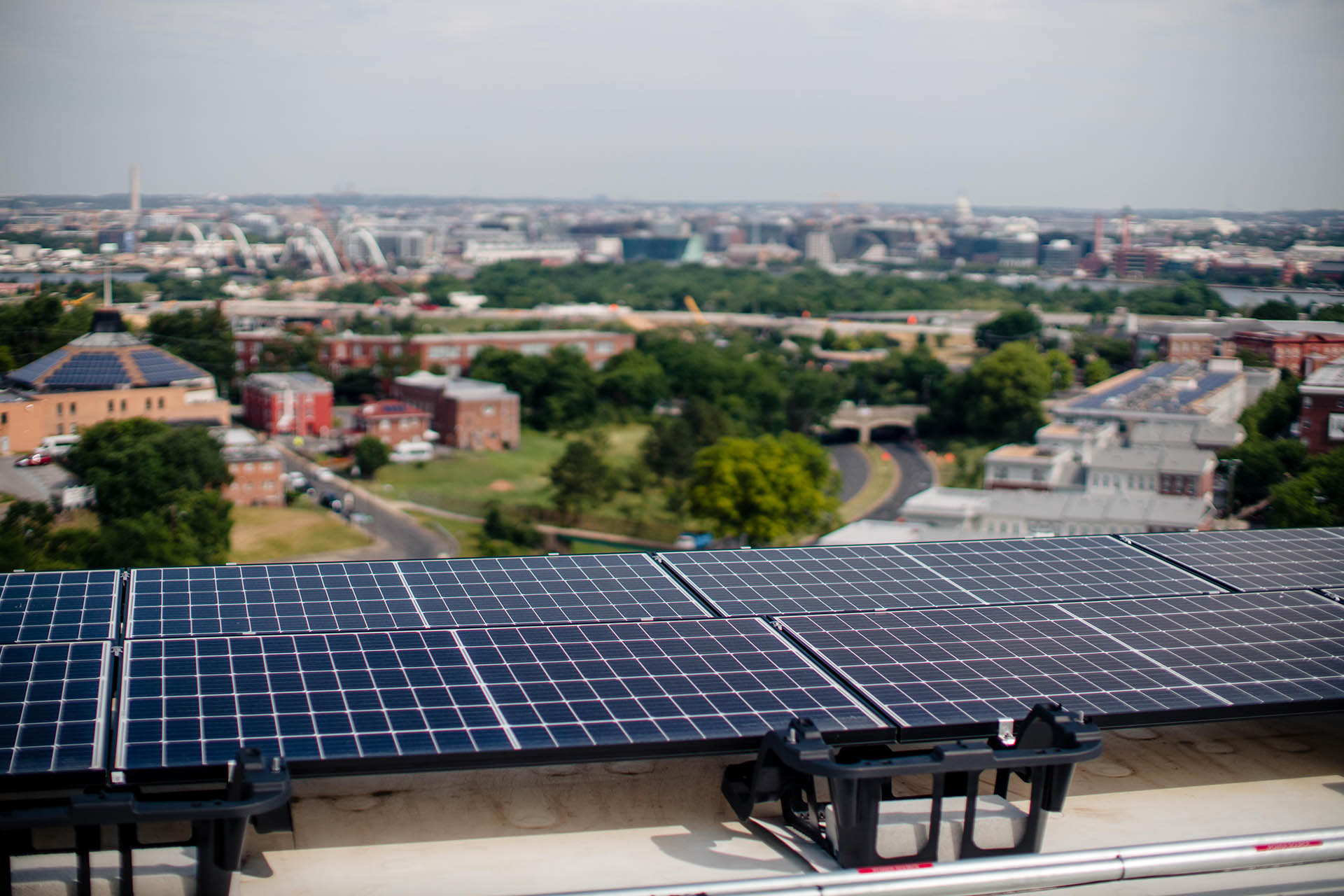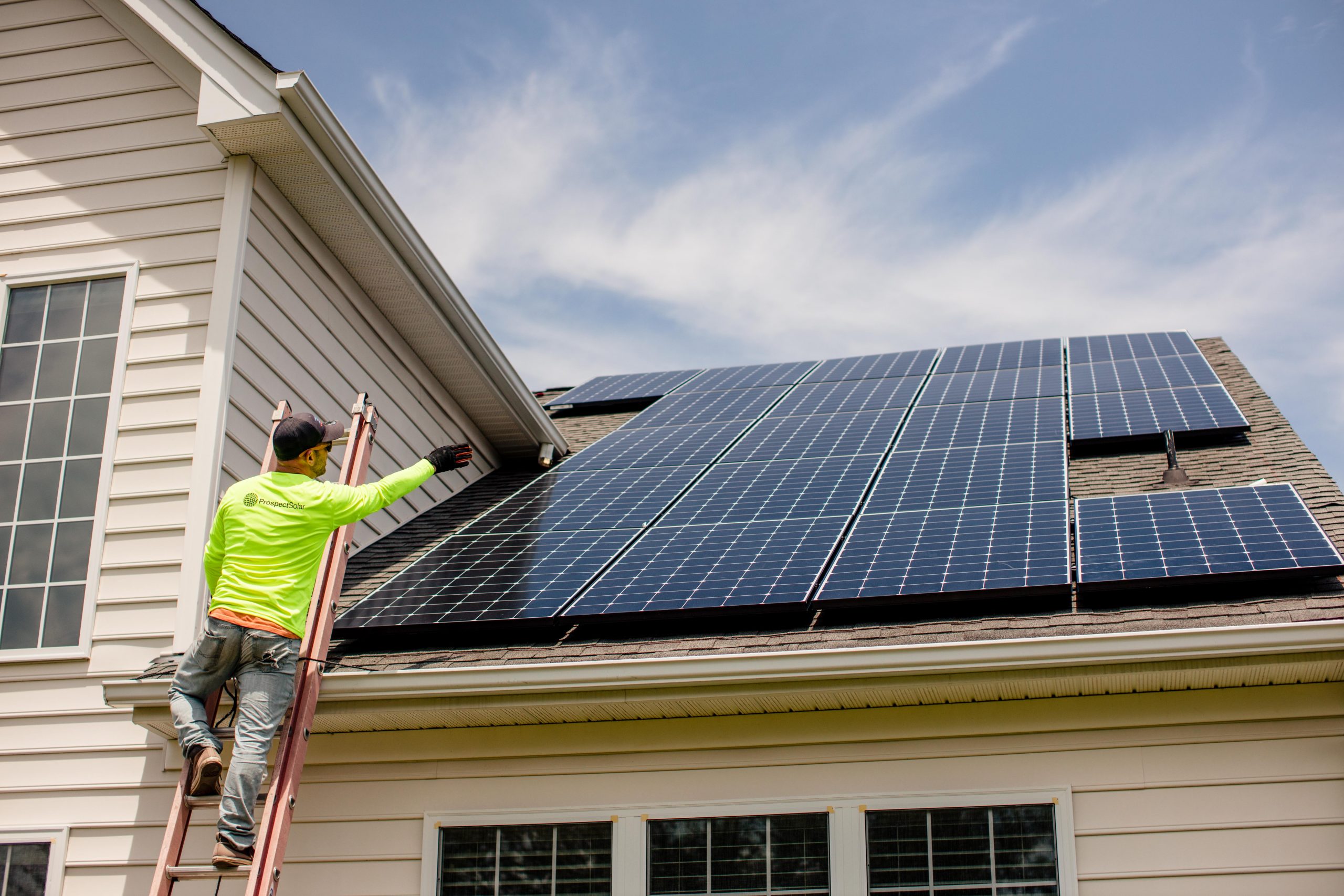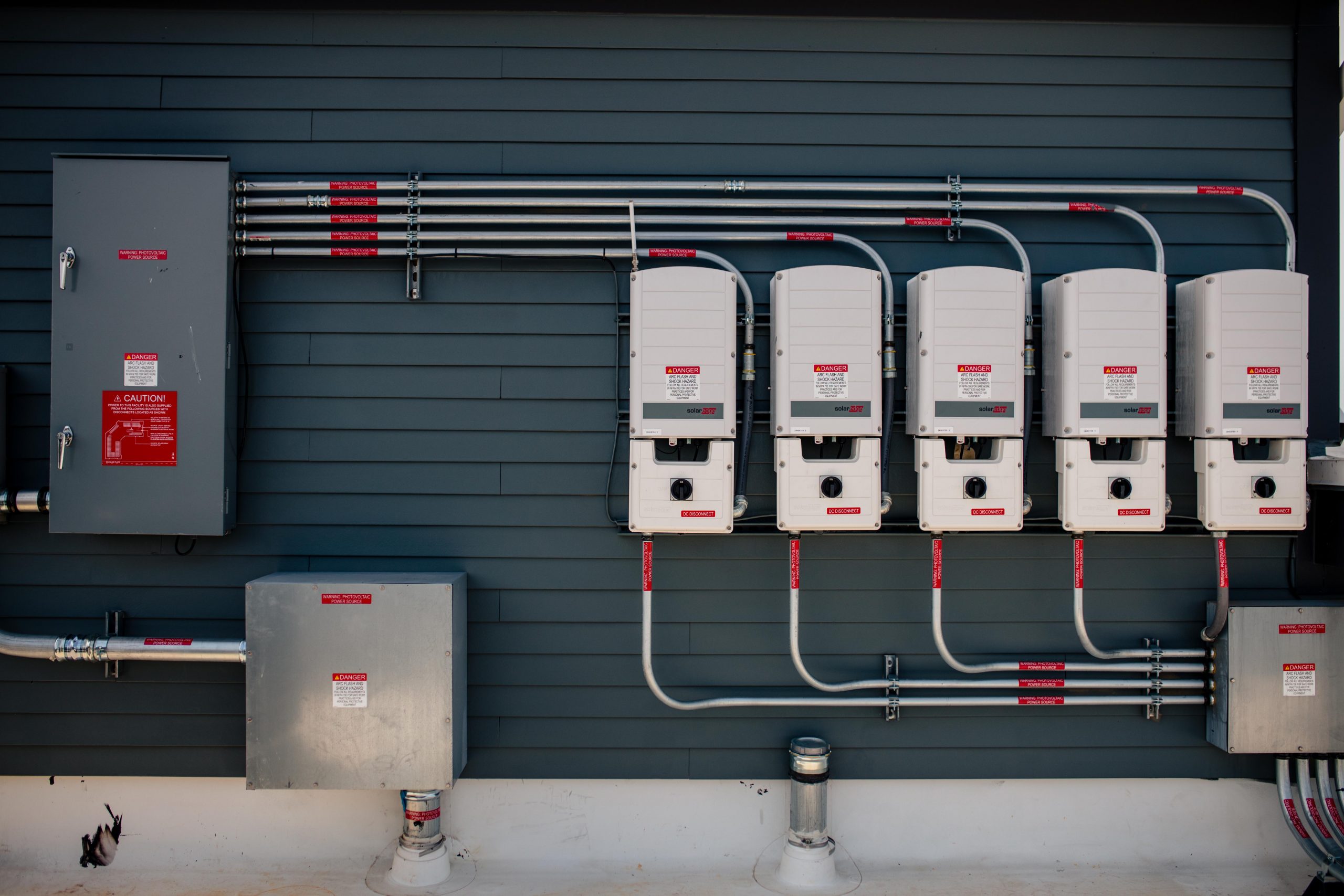Solar Panel Design and Installation service Northern Virginia, Washington D.C. and Maryland
Solar Energy Equipment
At Prospect Solar, we specialize in the design and installation of solar photovoltaic energy systems. These energy systems, also known as “PV” or “Solar PV” for short, are designed to harness the sun’s energy, and convert it into the electricity that your home or business uses.
Solar Panels (or Solar Modules)
Solar modules, more commonly known as solar panels, are the iconic piece of equipment in solar energy systems. Photovoltaic (PV) solar modules are composed of silicon semi-conductors specially designed to harness the sun’s energy in a process known as the photovoltaic effect.
- When exposed to sun, the PV solar panels produce energy in the form of a direct current (DC) charge.
- This DC charge, the same as in your car, can be measured in units of power, or watts.
- Similarly, you may have noticed “kilowatt hours” on your monthly energy bill. This is a unit of 1,000 (kilo) watts used per hour..
- Solar modules name plate rating can range from roughly 75 to 500+ watts.
- When solar panels are grouped together, they form an array. The energy potential (or size) of that array is classified by the number of panels multiplied by their output rating (in watts).
- For example, an array of (20), 400-watt solar panels would have energy potential of 8 kilowatts (20 modules x 400 watts = 8,000 watts).
- For size determination, we would call this a “8-10 kW Array.” If the average home uses 11,280 kilowatt hours per year, a 8-10kW solar array would cover the majority of their kWh usage.

Inverters
Since solar modules produce a DC charge, it is necessary to convert direct current to alternating current (AC), as to accommodate the commercial appliances and fixtures within your home or business. Inverters regulate the energy produced by the solar modules and adapt it to appropriate levels necessary for your energy usage, and are compatible with single-phase (most residential) and three-phase (generally commercial) applications.
Solar inverters make the connection to your existing electrical meter and provide communication on solar production to technicians and other solar equipment, such as monitoring devices (see Monitoring).
There are two main types of inverters for solar energy systems, each with their own advantages:
Central Inverters
- Central inverters are generally used for arrays that have large amounts of solar access
- Central inverters often are less expensive, and group “strings” of solar panels
- This allows for fewer components of the energy system, and central access to equipment
Micro Inverters
- Micro inverters are generally used when a portion of an array is temporarily shaded
- Micro inverters are assigned to each individual solar panel
- This allows technicians to monitor and analyze each solar module’s energy production
Racking Systems
Solar arrays are most commonly placed on either the roof of a facility or on the ground in a designated clearing. “Racking” refers to the structural systems that secure the solar arrays in place. Since these racking systems are designed to support the weight of the solar panels, as well as withstand hurricane-force winds up to 90 mph, their method of attachment varies based on their mounting style and location.
Prospect Solar can also provide custom-designed solar solutions for racking structures, as well as integrate solar with green roofs (vegetative roofs). In cases of roof mounts, we also have the unique abilities to maintain roof warranties as well as offer remedial roof repair.
Ground Mounts
Ground mounts are typically made of aluminum racking supported by galvanized steel, and are certified by structural engineers.
- Ideal for applications with open spaces (such as solar for vineyards or farms)
- Allows for larger solar arrays and larger offset of utility bills
- Serves as a solution for roof shading or limited roof space
- Typically attach to ground through concrete pillars or footings
- Some models can serve as solar canopies with parking/storage space below

Ballasted Roof Mounts
Ballasted roof mounts are typically composed of “ballast trays” made of a recycled material such as polyethylene, which helps prevent puncturing of roofing membranes.
- Ideal for applications with flat roofs (such as solar for commercial buildings)
- Allows for minimal or even zero penetrations of the roof surface to preserve roof integrity
- Uses weighted pavers or ballast blocks to secure arrays to roof
- Allows for solar installation on EPDM, TPO (thermoplastic), built-up roofing, and other flat roofs
- Prospect Solar has the unique ability to install solar and maintain waterproofing warranties
Flush Roof Mounting
Flush roof mounting allows for solar panels to be mounted onto homes in a secure and low-profile fashion.
- Ideal for pitched roofs of varying angles (such as solar for homes)
- Allows for minimal penetrations by tying into existing roof framing
- All penetrations are fitted with waterproof flashings, which are sealed and inspected
- Can be installed on composite (asphalt shingle), wooden shake, metal (standing seam), and slate roofs
- Wiring, grounding, and micro inverters (if selected) are tucked neatly below solar panels

